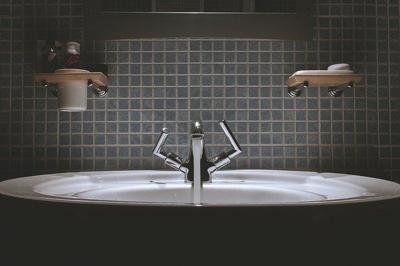
When it comes to home maintenance, the plumbing system is usually the least of your worries. It's hidden away inside your walls and bathroom vanities. As long as it provides water and eliminates waste on demand, you probably aren't worried about it. However, a variety of issues could plague your plumbing. And you probably won't even notice them until they do significant damage.
Plumbing Repairs and Your Money
Plumbing problems can cause you to sink hundreds (if not thousands) of dollars the drain because of repairs. Some of these hidden issues include:
- Running or Overflowing Toilet - Every time you flush your toilet, you use about five to eleven liters of water. Imagine a bathroom that's continuously flushing. You can end up wasting hundreds of liters of water a day. Apart from being unsustainable for the environment, this problem could also cause a spike in your bills. The same goes for overflowing toilets. Water should go down immediately when you flush. If it stays filled for a while, you may have a clog in your pipe. This causes the water pressure to weaken in the toilet, so you have to flush even more to get the waste to drain down. Again, you end up wasting liters of water.
- Low water pressure - For some, weakening water pressure is just something to get used to. If you like to have quick showers, however, good water pressure is everything. Apart from being an annoyance, this problem may signal a more significant issue, too, like a leaking or burst pipe.
- Discolored and smelly water - Your water should always be clear and free of any smells. If it's discolored, your pipes may be rusted. This signifies that they could also end up leaking or bursting, as corrosion weakens the pipes' material. If a weird smell accompanies the discoloration, it could indicate that you have a sewage issue that needs to be addressed as soon as possible.
These plumbing problems are a pain to deal with. Fortunately, they're preventable. And if they're already present, you can stop them from doing further damage by dealing with them early.
Keep Clogs in Check
Clogs are more dangerous to your plumbing system than they seem. For one, they let water stand in your pipes, adding pressure and shortening the material's lifespan. These clogs may also contain chemicals that could corrode the pipes and cause leaks.
The best way to deal with them is to prevent them from developing in the first place. Head to your nearest hardware store and get a set of screens for your sinks. These will keep food scraps and hair out of the drain. It would be best if you still made a conscious effort to scrape your food waste into the garbage can before putting the plates on the sink.
This is because the food items' grease could also make its way down the drain. And while they may be liquid now, they'll solidify once they cool down inside the pipe. And when you let them build up, they'll likely create a blockage. It's precisely like fat clogging up a person's arteries. If you have leftover grease, put them inside a bag and dispose of them in the trash.
Minimize the Use of Chemical Clog Removers
If you're currently experiencing a clog in one of your pipes, you may feel the need to use a chemical clog remover. These are OK to use for your first few incidents, but you shouldn't rely on them to clean your pipes every time. This is because they could do more harm than good if you expose them to your lines repeatedly. These products contain hydrochloric acid (HCL), a corrosive acid; high amounts can rust and ultimately destroy metallic surfaces. Even galvanized steel sheets can get corroded when exposed to HCL.
Get a Water Softener
The hardness of your water, also known as the amount of calcium and magnesium minerals in it, has little effect on your health or day-to-day cleaning. But it does affect your pipes. High calcium, magnesium, and other mineral content can build up inside your pipes over time and cause clogs. They can also cause the materials to corrode.
One way to solve this is to install a water softener. These devices use sodium to react with the minerals in the water. Some softeners use electromagnetic pulses to dissolve the minerals, which you can opt for if you don't want sodium in your water.
Your home's plumbing system is often overlooked when it comes to maintenance because it's hidden away. As such, the problems don't get noticed immediately. Once they reach the surface, the damage is already severe. Learn how to take care of your plumbing system to avoid expensive and inconvenient repairs.;




(0) comments
We welcome your comments
Log In
Post a comment as Guest
Keep it Clean. Please avoid obscene, vulgar, lewd, racist or sexually-oriented language.
PLEASE TURN OFF YOUR CAPS LOCK.
Don't Threaten. Threats of harming another person will not be tolerated.
Be Truthful. Don't knowingly lie about anyone or anything.
Be Nice. No racism, sexism or any sort of -ism that is degrading to another person.
Be Proactive. Use the 'Report' link on each comment to let us know of abusive posts.
Share with Us. We'd love to hear eyewitness accounts, the history behind an article.